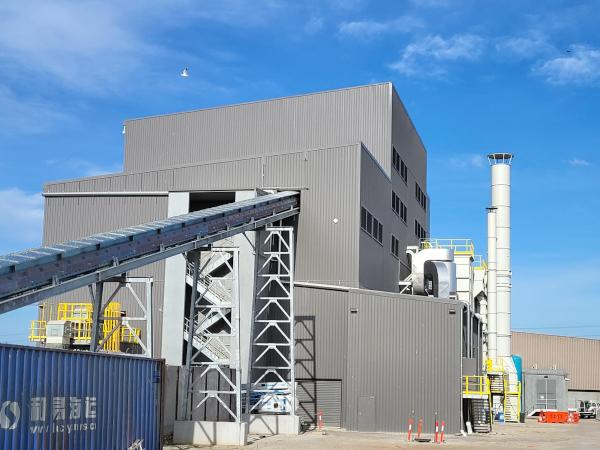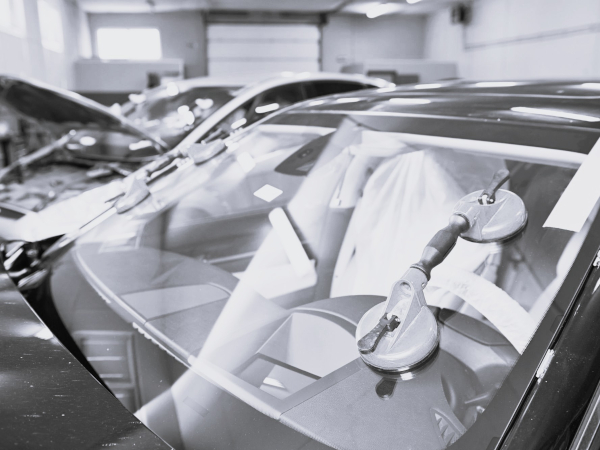
Date: 11 March 2024
Designed to process 200,000 tonnes of recycled glass per year, this cutting-edge facility represents a significant leap forward in glass recycling technology.
The recent opening ceremony at the Laverton (Melbourne) site marked the culmination of a ground-breaking collaboration between REDWAVE and Visy, a leader in glass recycling and manufacturing in Australia and New Zealand. Together they have embarked on a revolutionary project that will redefine the glass recycling in Australia. This state-of-the-art facility, equipped with the latest sorting technology, replaces the previous facility, and introduces a new era in sustainable glass management.
Wayne Russell, Executive General Manager - Recycling at Visy, emphasized the commitment to closing the loop for glass in Victoria. "At Visy, we are committed to closing the loop for glass in Victoria. By building our brand-new glass recycling facility with REDWAVE's world-class optical sorters, we've doubled the amount of glass we can recycle," Russell stated.
"Our partnership with REDWAVE means we have state-of-the-art equipment supported by a trusted and reliable technology partner," Russell continued. As general contractor, REDWAVE was responsible for the entire process of design, engineering, delivery, installation, and commissioning, ensuring a maximum yield of cullet.
Revolutionising glass processing
With a processing capacity of 200,000 tonnes annually, the new plant will receive two-thirds of the input from kerbside mixed recycling collections (MRF Glass) and one-third from the newly established Victorian container deposit scheme (CDS Glass). On arrival, the glass is meticulously sorted into three different colours, down to three millimetres in size. This systematic sorting ensures a reliable supply of flint (clear), amber, and green glass for future glass production. The plant also maximises the use of by-products, minimising the impact on landfill and recovering valuable secondary materials. Remarkably, the sorting operates autonomously, eliminating the need for manual sorting - a pioneering achievement in glass processing.
Innovative sensor technology
REDWAVE has devised an ingenious solution to the unique challenges posed by glass-ceramics, which behave differently to ordinary glass when melted. Using its proprietary CX camera and lighting unit, the system skillfully separates glass-ceramics, ceramics, stones, porcelain, and off-colours through a multi-stage sorting process.
Increased efficiency with REDWAVE mate smart plant
The implementation of REDWAVE mate smart plant software optimises plant efficiency by collecting and processing real-time production data. This data empowers operators and enables autonomous plant operation, all tailored to meet customer requirements. At the heart of this data collection are REDWAVE's sorters, which act as data hubs to relay critical information to the software.
Digital sales landscape
Navigating this major plant sale during the global pandemic required innovation. REDWAVE rose to the challenge by making the entire sales process digital. With a remarkable commitment to the customer experience, all interactions, including reference visits and sorting tests, were conducted virtually, bridging distances of 16,000 kilometres and an eight-hour time difference.
Follow-up order
As a testament to the success of the project, a follow-up contract to build another glass recycling facility at the Yatala site near Brisbane has been awarded. This project is already underway and is scheduled for completion in early 2025.
REDWAVE CEO's statement on the impact of the new facility in Australia
"We take pride in REDWAVE's significant contribution to reducing glass landfilling in Australia. With our exceptional sorting quality, we can now reintroduce this glass into the recycling loop, facilitating the creation of new bottles," states REDWAVE CEO, Silvia Schweiger-Fuchs.
 600450
600450














Add new comment